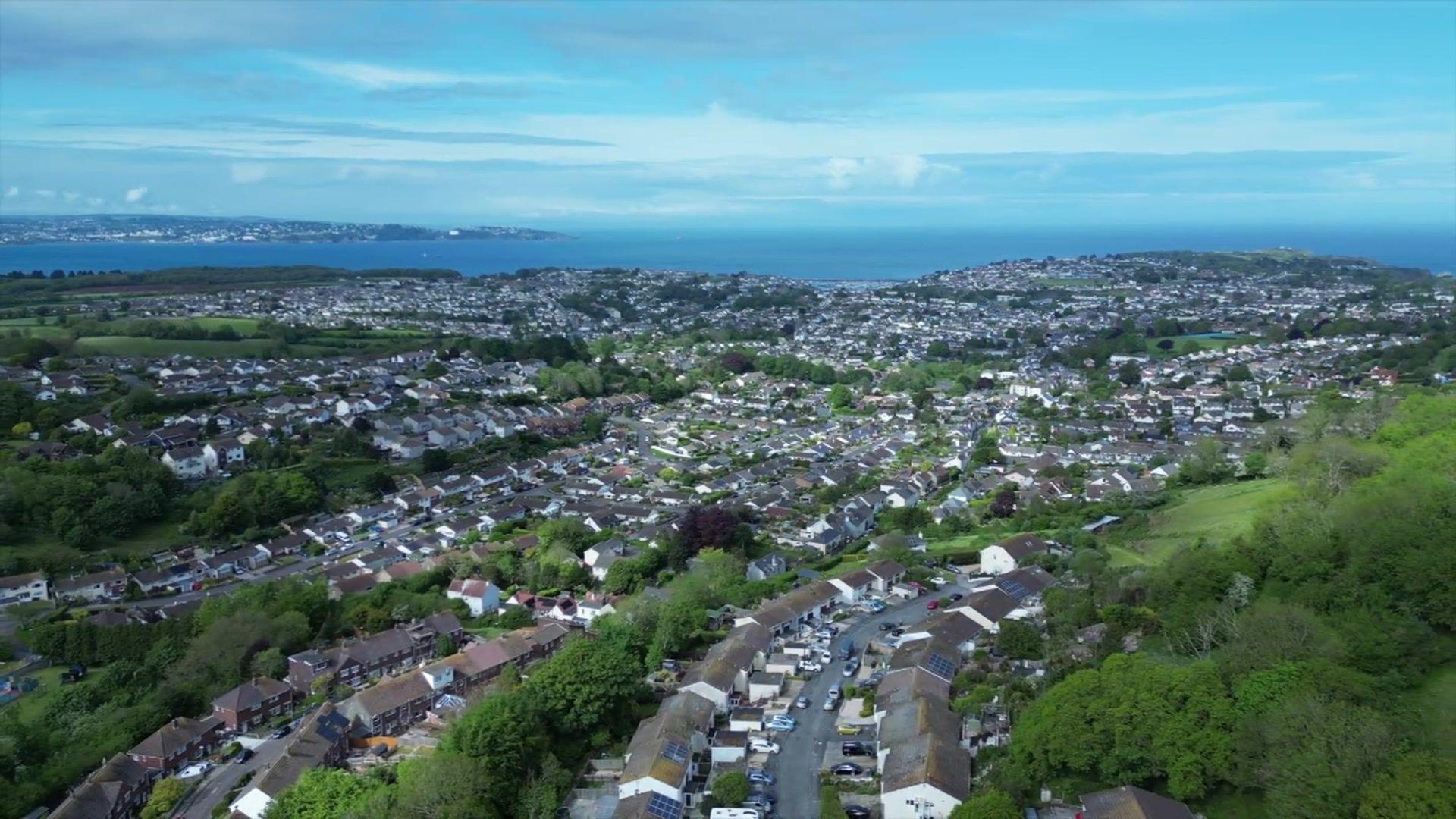Boil water warning after parasite found
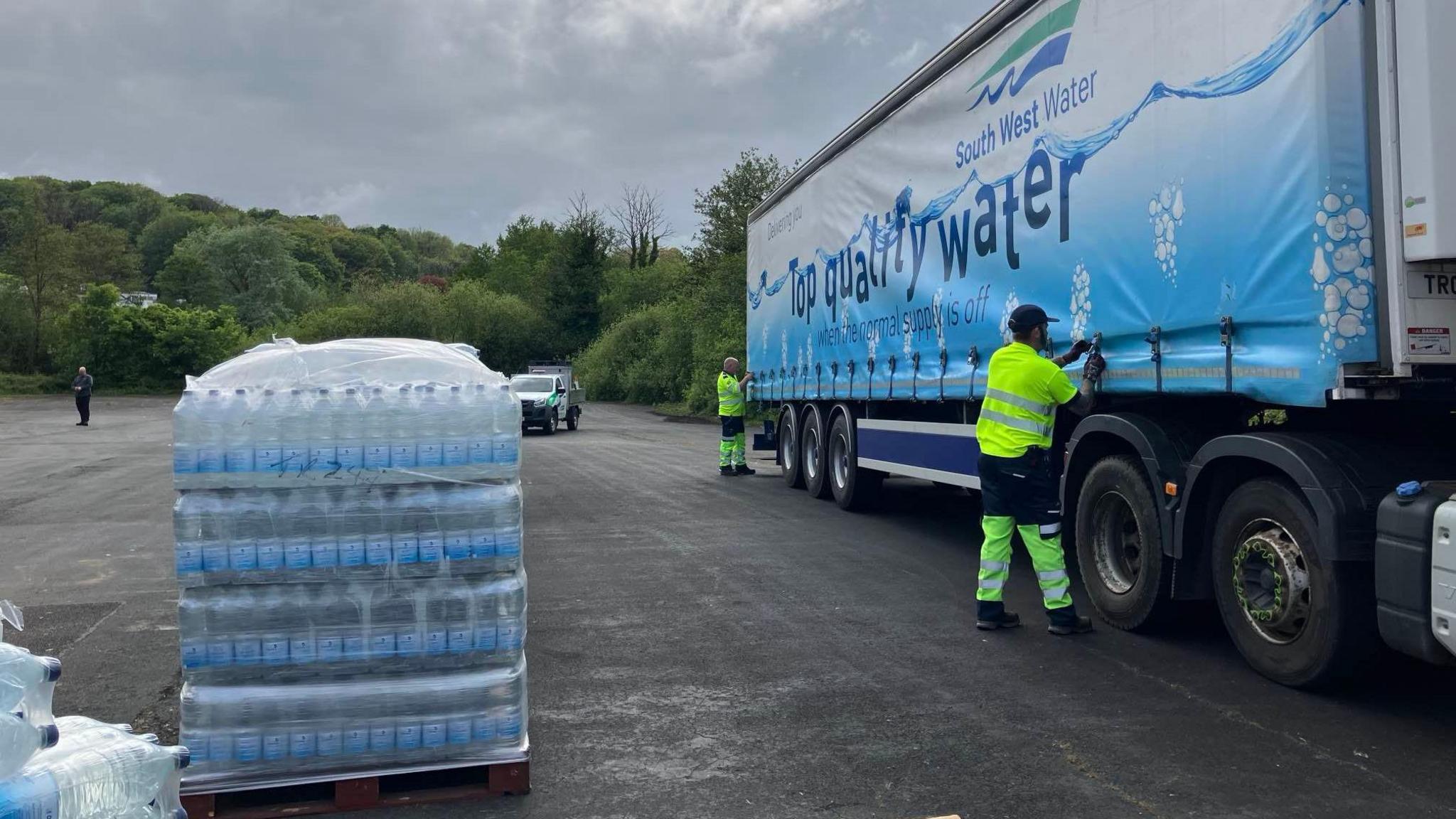
South West Water has been providing affected residents with bottled water
- Published
People across south Devon have been advised to boil their tap water as 22 cases of a diarrhoea-type illness have been confirmed.
A further 70 suspected cases are also being investigated.
The UK Health Security Agency (UKHSA) said the parasite, cryptosporidium, was "predominantly a waterborne disease".
Infections can be caused by drinking contaminated water or swallowing it in swimming pools or streams.
South West Water (SWW) said the Hillhead reservoir and the wider Alston area was being investigated as a potential cause for the outbreak.
Dr Lincoln Sargeant, director of Public Health in Torbay, said about 40,000 people get their tap water from the reservoir.
“In terms of people who have actually been affected we have to date 22 confirmed cases and about 70 to 100 people have contacted their GP with similar symptoms over the last few days.”
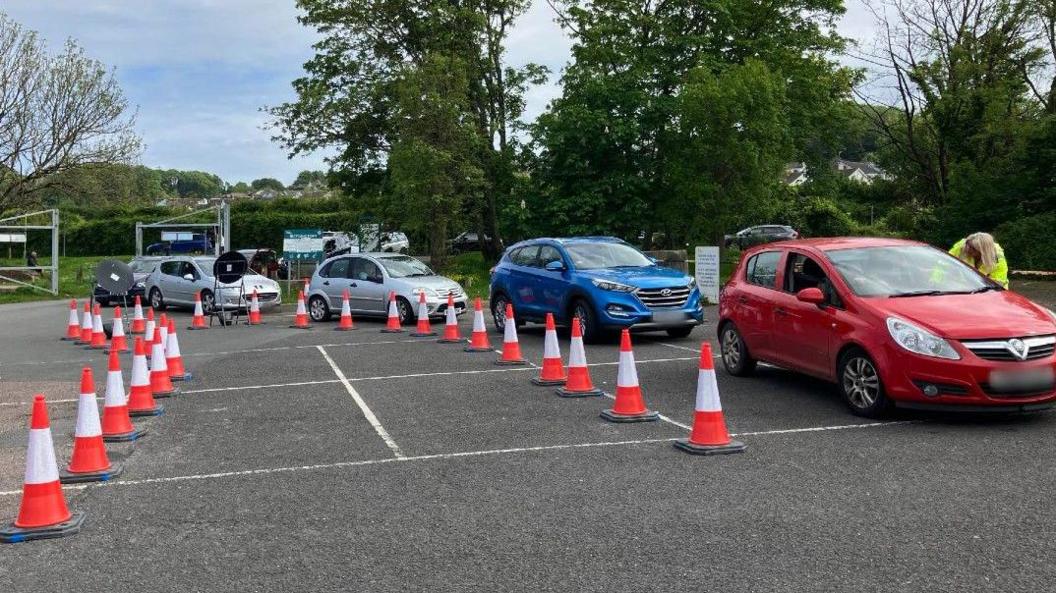
South Devon residents have been queueing for bottled water from South West Water
SWW has urged residents across Brixham, Boohay, Kingswear, Roseland and north-east Paignton to boil their tap water.
Chris Rockey, from SWW, said people should boil water to drink, cook and clean their teeth within the affected areas.
He said the firm would continue to work with "health professionals and monitor the water" and that it had started its investigation after it was contacted by the UKHSA on Monday.
The company said data from tests on Tuesday showed treated water leaving its treatment works was not contaminated, but further tests overnight found small traces of cryptosporidium.
SWW said it was confident boiled water was safe and had issued the advice as a precaution.
Mr Rockey said he was unable to provide a timeframe for how long residents should continue to boil water.
He said further advice would be issued when the water supply had "returned to normal".
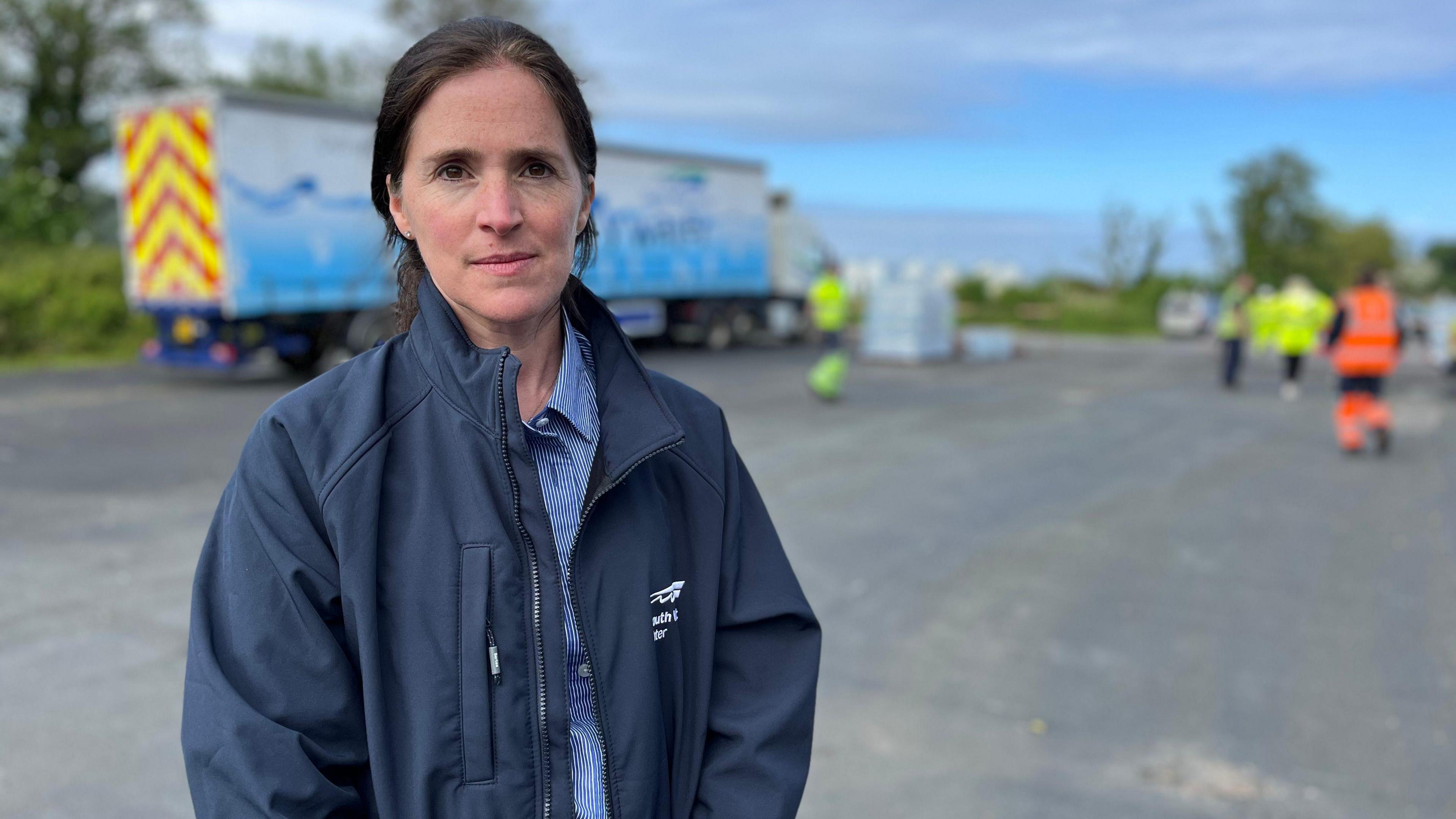
Laura Flowerdew said SWW "should have said something different" on Tuesday
Laura Flowerdew, SWW chief customer officer, said it was a mistake for the company to tell people to keep using the water on Tuesday.
She said: "With the benefit of hindsight and additional sampling we've taken we do realise that now perhaps we should have said something different yesterday.
"However we operated at that point with the best intentions and using the sampling and the water quality monitoring that we had available to us, and we were working with the public health authorities as well."
Ms Flowerdew said SWW was "working as fast as we can to make sure we are supporting customers" and that it would set up two additional water stations.
"We have people working throughout the night to try and understand and find the root cause of the problem - as soon as we've done that we will give further information to customers."
'Enormously frustrating'
Conservative MP for Totnes and South Devon, Anthony Mangnall, said: “It is enormously frustrating that South West Water weren’t quicker to respond at the first point at when this was reported.
“It started with an initial denial that it was anything to do with their network and of course they have now found the cryptosporidium is in their network and they are responding.
“Residents were quick to actually point out there was something wrong with the water, they could taste it, and now they are suffering.”
Mr Mangnall said: “What I want to see is for them to address the problem, fix it as quickly as possible and make sure the support for residents is there both now and into the future so they can have confidence in their drinking water.”
Mr Rockey said the increased number of people who were unwell in the Brixham area had led to the water company undertaking additional monitoring.
SWW said, external "small traces of the organism" were identified overnight and on Wednesday morning in the Hillhead section of its network.
It said: "We apologise for the inconvenience caused and will continue to keep customers and businesses updated."
The firm said unboiled water could continue to be used for washing, bathing and toilet flushing.
What is cryptosporidium?
The parasite, also known as crypto, causes an illness or disease called cryptosporidiosis affecting people and some animals, the UKHSA says, external.
It can be found in the intestines and faeces of infected humans and animals and can contaminate lakes, rivers, swimming pools, untreated or poorly treated water and food.
Symptoms include diarrhoea, stomach pains, nausea or vomiting, low-grade fever and loss of appetite which can last up to two weeks.
The bug is most common in children aged between one and five and also those with weak immune systems.
The UKHSA says most people with healthy immune systems will recover within one month.
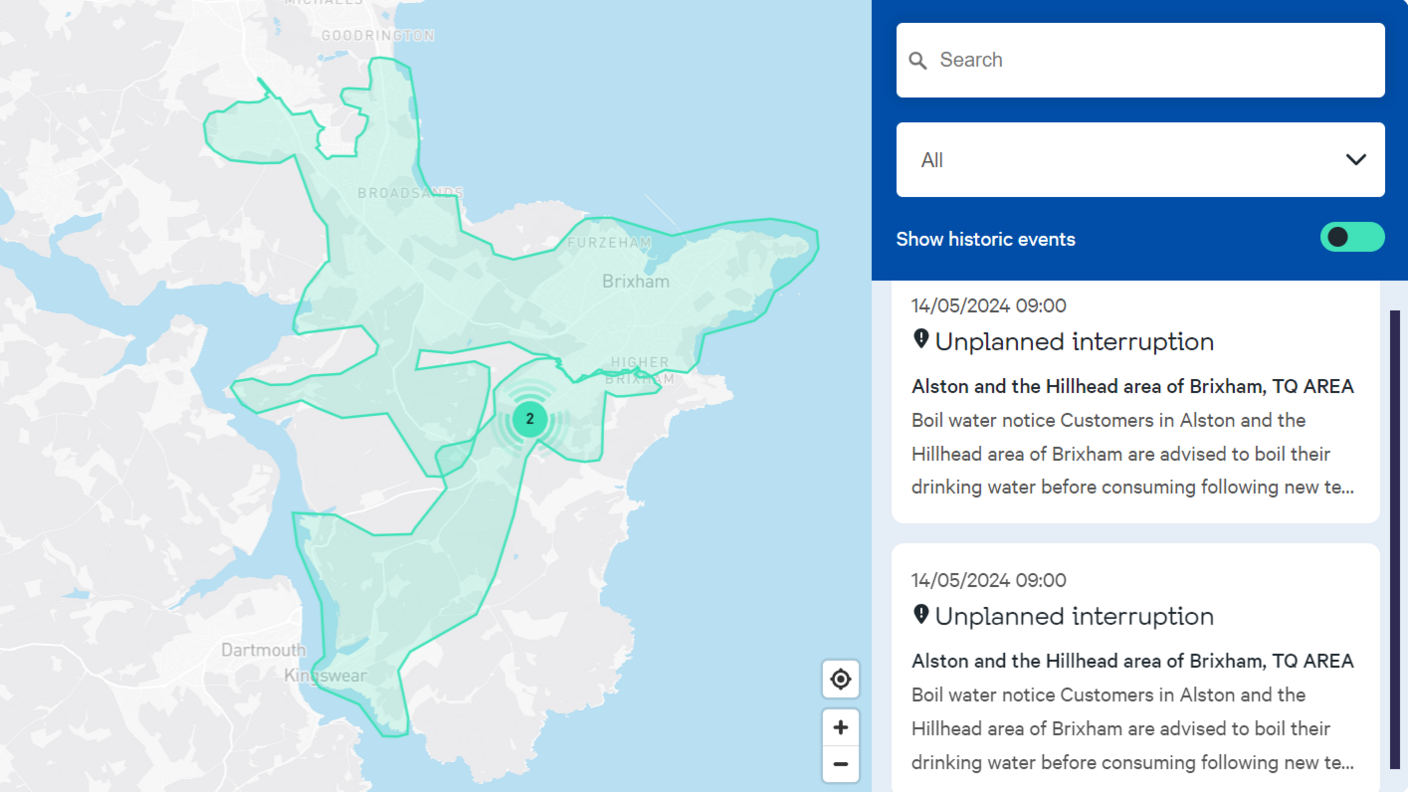
SWW said "low levels of cryptosporidium" were found in the local supply
Harriet Oakley, from Alston, Brixham, said she contacted SWW on Tuesday for “clarity on the situation” as she was worried for her seven-month-old daughter and four-year-old son’s health.
She said: “They said to me categorically the water is safe, you should continue to use it as normal – we’re less than 24 hours later [and] we have been notified that the water is not safe to drink.
“I’ve been making up bottles for a small child, you go to any of the supermarkets and you can’t get bottled water anymore because the shelves are sold out.”
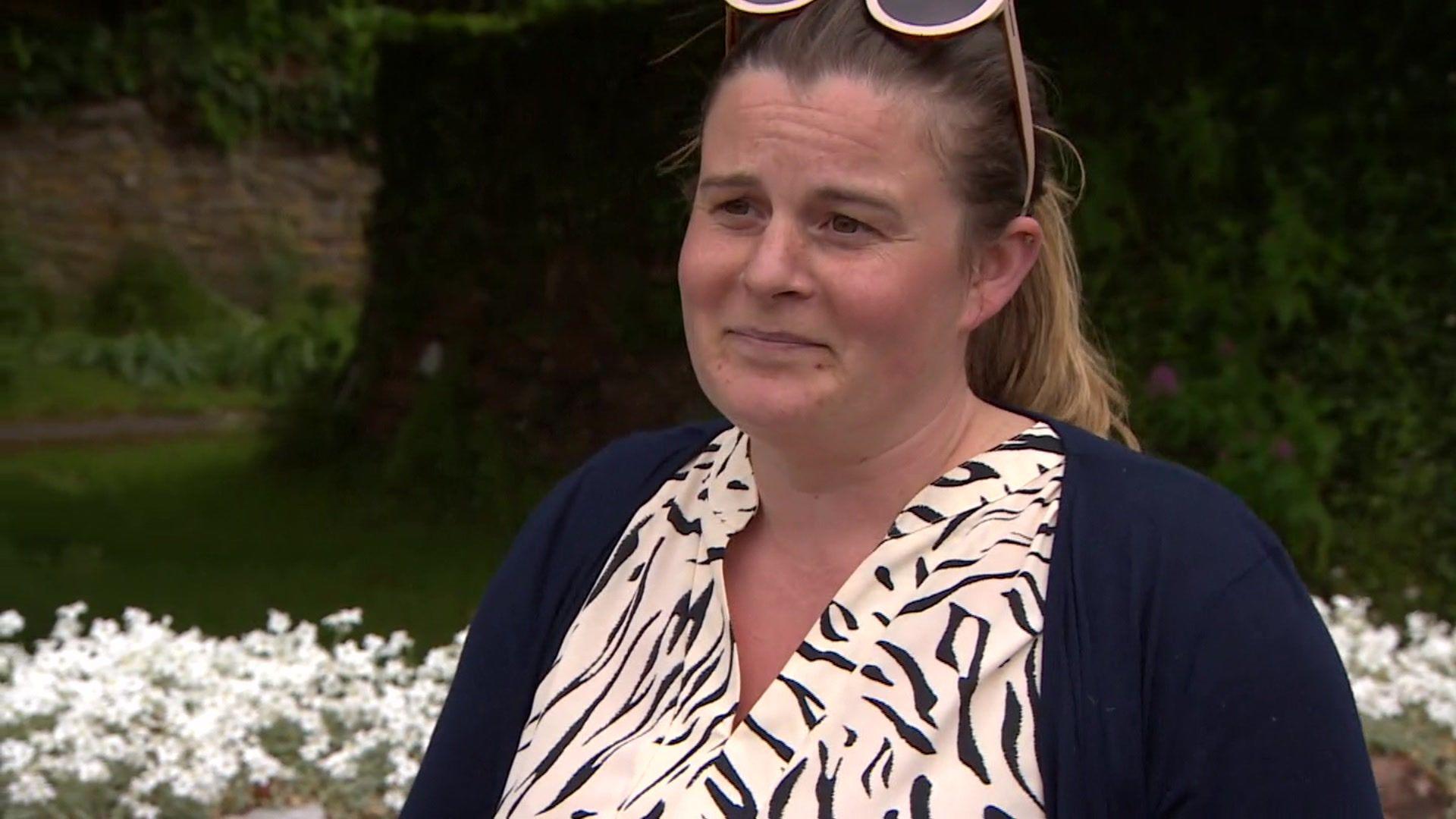
Harriet Oakley, from the Brixham area, said on Tuesday, SWW had told her the water was safe
Ms Oakley said she was “outraged” by the change in advice.
She said: “I think they need to have a good long look at themselves – they’re meant to be providing a safe service.
“We don’t have the luxury of being able to pick and choose water services, they’re the only option that we have, we have to use them.
“They are messing with people’s lives, their incomes… most of all they’re impacting people’s health, which is unacceptable.”
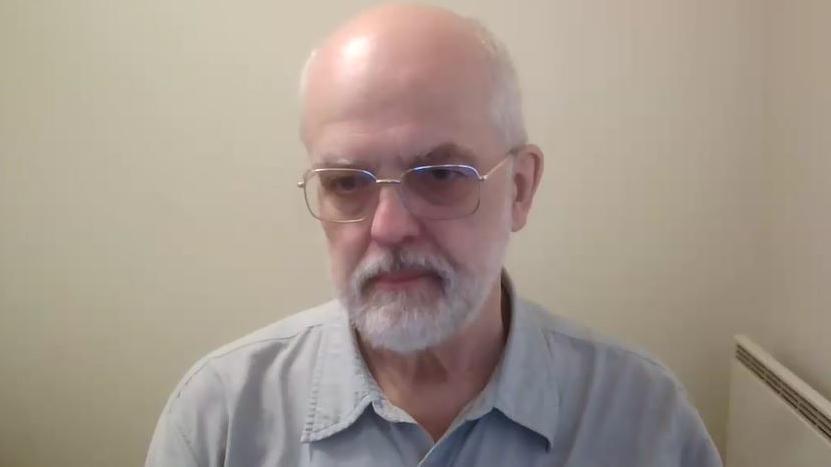
Infectious disease expert Prof Paul Hunter said cases would continue to rise
Prof Paul Hunter, an infectious disease expert at the University of East Anglia, said: “It’s difficult to know how big these outbreaks turn out to be.
“It depends on whether the contamination event was a short-lived thing or whether it was over quite some time.
“Even if they stop the infection today, we will still see new cases occurring for up to a week to 10 days.”
Prof Hunter said: “They’ve got to find out what the source is and how it got into the drinking the water.
"It’s a difficult problem coping with boil water notices, but that’s effectively all you can do.”
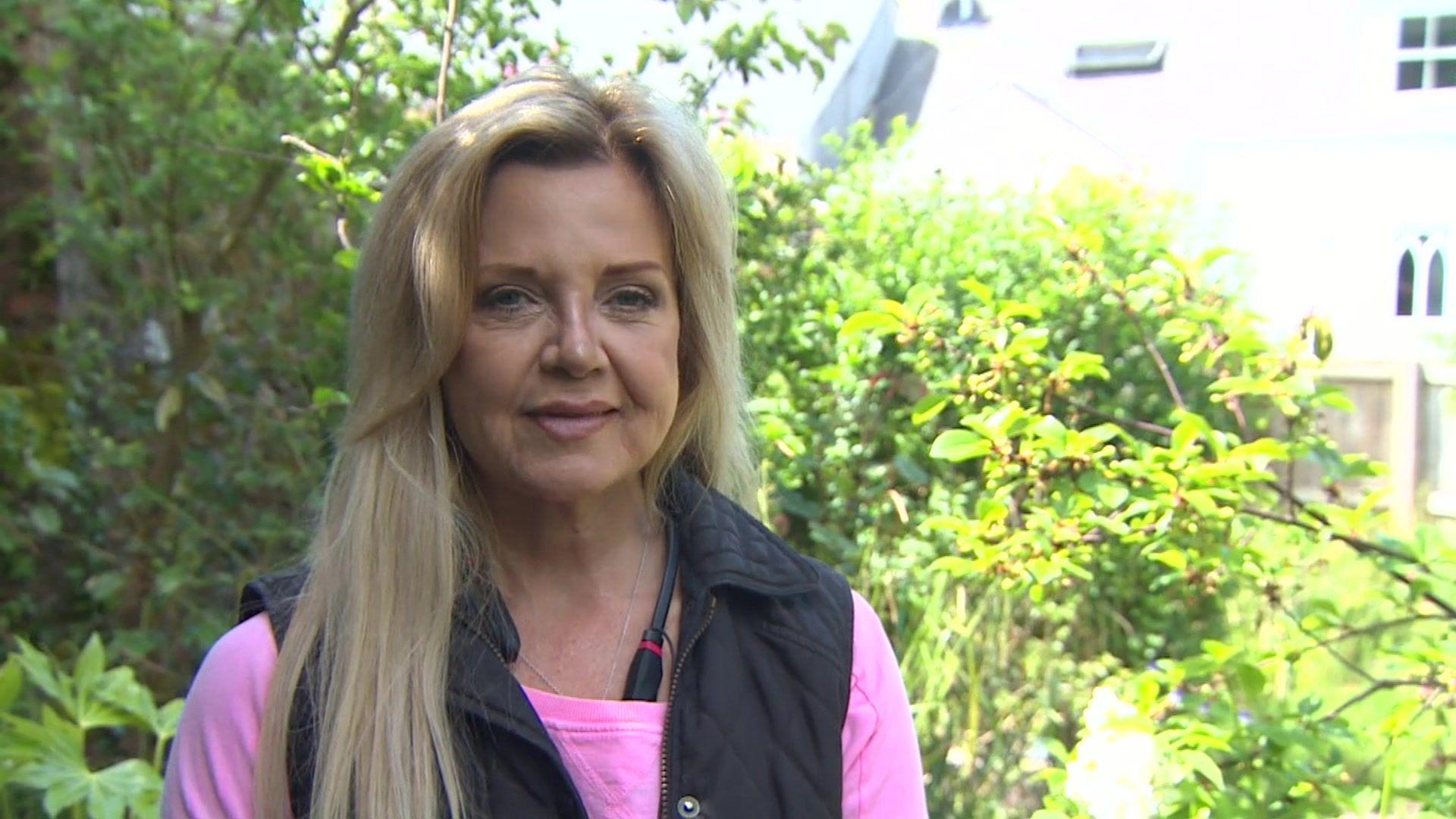
B&B owner Anne Kerry-Groucutt said her business had had cancellations
Anne Kelly-Groucutt, who runs Hortus House, in Brixham, said she believed her business had been affected by the incident.
She said two cancellations were made on Tuesday following cryptosporidium reports.
She said one booking was cancelled after just a matter of minutes.
"It's a little concerning," she said.
"In the history of us having the B&B we have never had a cancellation within 10 minutes of a booking."
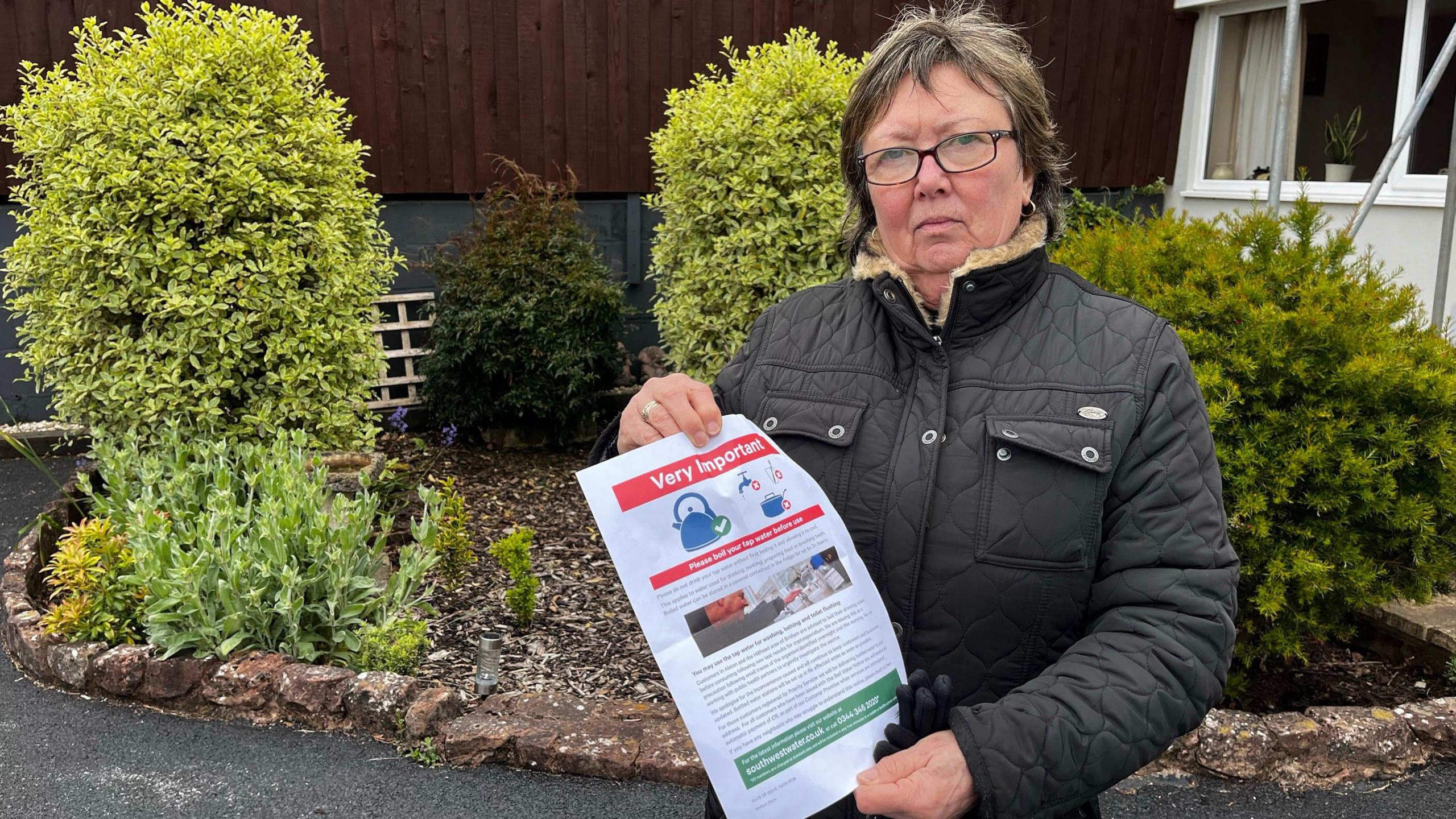
Jane Boyle said it was "distrusting" of SWW to take so long to provide information
Jane Boyle, resident at Hillhead, Brixham, said she received a letter through her door on Wednesday from the water company telling people to boil their water before use.
She said people had been sick in her area for about 10 to 13 days and they thought it was food poisoning.
Ms Boyle added it was "distrusting" of SWW to take so long to provide information.
Hillhead resident Helen Sneyd said: "It's not very nice for anyone to have gone through that - let's just hope they clear it up quickly".
The UK Health Security Agency said it was working with Torbay Council, SWW, NHS Devon and the Environment Agency to investigate the cases.
Get in touch
Do you live in Devon? Are you boiling your water?
Follow BBC Devon on X (formerly Twitter), external, Facebook, external and Instagram, external. Send your story ideas to spotlight@bbc.co.uk, external.
- Published14 May 2024
